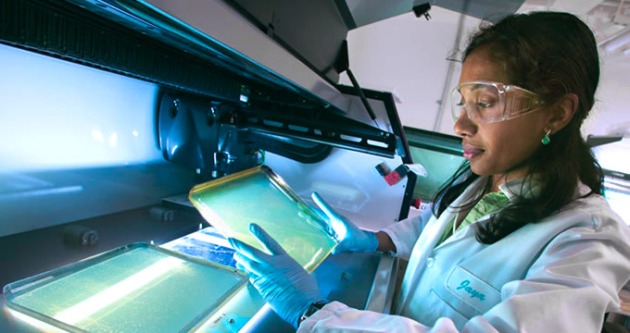#IRBRCR – It’s time to be sure that you have your CITI Responsible Conduct of Research and IRB certifications
Every graduate student needs to know the guidelines for responsible conduct of research. Depending on the discipline, students need to have additional training regarding rules and regulations for conducting research using animals or humans (including surveys) and details related to ownership of work. All doctoral students and all master’s students should be prepared to learn about “Responsible Conduct of Research” training.
- Animal Care and Use (ACU)
- Biosafety and Biosecurity (BSS)
- Clinical Research Coordinator (CRC)
- Conflicts of Interest (COI)
- Disaster Planning for the Research Enterprise (DPRE)
- Export Compliance (EC)
- Good Clinical Practice (GCP)
- Good Laboratory Practice (GLP)
- Human Subjects Research (HSR)
- Information Privacy & Security (IPS)
- Responsible Conduct of Research (RCR)

Photo credit: https://www.citiprogram.org/
PLEASE NOTE: At UMBC, RCR certification is REQUIRED for all graduate students who are engaged in research and working on either a master’s thesis or a doctoral dissertation, regardless of funding source. All students should check with their thesis or dissertation advisors, academic departments, and respective graduate schools to learn about which certifications are needed for your research.
ANSWERS TO FREQUENTLY ASKED QUESTIONS
What do I do if my department doesn’t require the certification?
FOR THE SESSION ON OCTOBER 21, 2015
2) Responsible Conduct of Research Training
- Wednesday, October 21, 2015. 1:00 PM – 4:00 PM.
- Lunch will be served. Coffee will be available throughout the session.
- UMBC – Commons 331
- Faculty and Postdocs who need to work on their certifications are also welcome to join in Commons 329.
- PLEASE BRING YOUR LAPTOPS TO THIS SESSION. Make sure that your laptops are fully charged. Be sure that you can see and complete quizzes and videos on your mobile device. Do not rely on a cell phone; the form factor is too small.
- BRING HEADPHONES. The modules have videos that accompany the quizzes.
- Talk with your advisor before you come to the session so that you’ll know how to best spend your time, e.g., RCR + Human Subjects Research (HSR) module, RCR + Animal Care and Use (ACU).
- If you’ve taken the RCR quizzes in the past, you can take a refresher course. Contact your Office of Research Protections and Compliance to see if they have a completed certification for you. The Offices of Research Protections and Compliance for all universities have lists of people who have completed certifications for their respective institutions. UMBC’s information is here: compliance@umbc.edu or 410-455-2737. Check for your respective office on your campus.
- This training is *DIFFERENT* and *SEPARATE* from the UMBC Academic Integrity Tutorial that all graduate students take when they register for classes. Even though you took the tutorial when you registered for graduate school, you still must have RCR training.
Note that the courses are online, and the modules are online. The certifications are generated after you pass the online quizzes and courses. You may work on the modules from any location: home, school, etc. The session at UMBC provides students with a dedicated, compartmentalized space and time to complete the certifications. This session was developed to assist with busy schedules by developing a space that can be carved out to facilitate completion. In the interest of accommodating basic needs, food and coffee will be provided for the seminar.
Registration:
Attendees from UMBC: Please register at http://my.umbc.edu/groups/promise/events/36089
Attendees from other universities: Please register by indicating your interest in coming to the event in the comments below.
Workshop Facilitator: Timothy Sparklin, MSW, CIM, CIP, Campus Compliance Officer
About Tim Sparklin:
Tim is UMBC’s Campus Compliance Officer. He has been at UMBC since 1992 and, since 1996, been responsible for many areas of research compliance at the university, including human participant protections, animal care and use, and the education and training of investigators. His responsibilites in the Human and Animal Research Protections Office include human and animal use education and training, CITI consultation, IRB and IACUC protocol consultation & pre-review, IRB and IACUC post-approval, PAPM ( IRB protocol audits), and Responsible Conduct of Research (RCR) education assistance. He holds a Master’s of Social Work from the University of Maryland, Baltimore and has professional certifications in the field of human research protections from the National Association of IRB Managers (CIM) and the Council for Certification of IRB Professionals (CIP).
Posted: October 7, 2015, 1:48 PM


